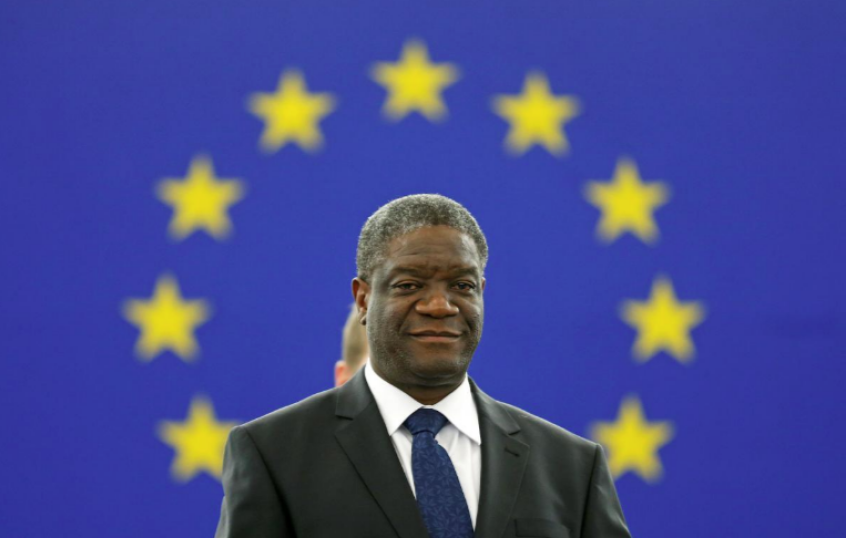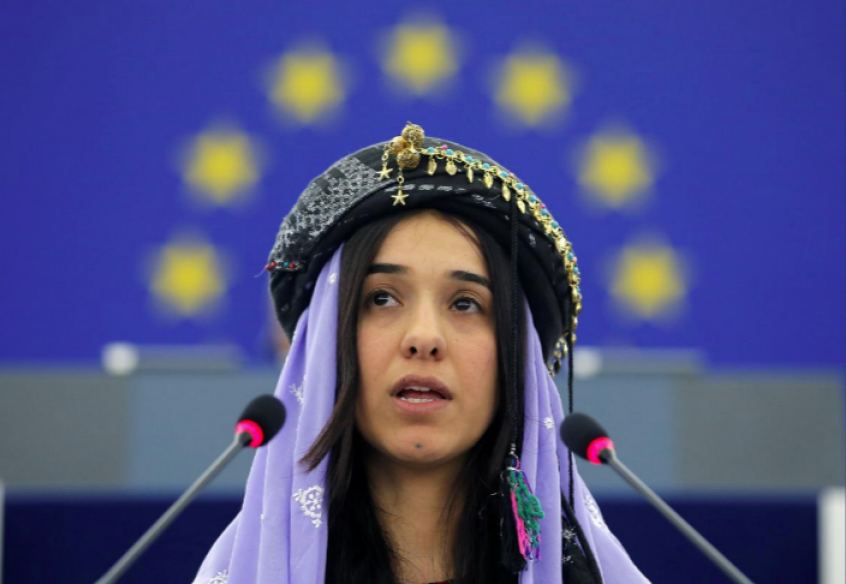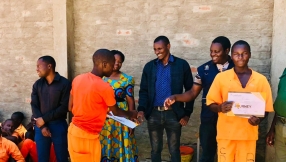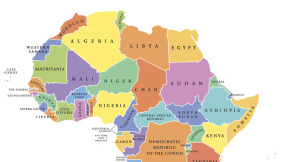Denis Mukwege, a gynaecologist helping victims of sexual violence in the Democratic Republic of Congo, and Nadia Murad, a Yazidi rights activist and survivor of sexual slavery by Islamic State, won the 2018 Nobel Peace Prize on Friday.
The Norwegian Nobel Committee said it had awarded them the prize for their efforts to end the use of sexual violence as a weapon of war.
'Both laureates have made a crucial contribution to focusing attention on, and combating, such war crimes,' it said in its citation.
Mukwege heads the Panzi Hospital in the eastern Congolese city of Bukavu. Opened in 1999, the clinic receives thousands of women each year, many of them requiring surgery from sexual violence.

He had devoted his life to defending these victims, the citation said.
Murad is an advocate for the Yazidi minority in Iraq and for refugee and women's rights in general. She was enslaved and raped by Islamic State fighters in Mosul, Iraq, in 2014.
She was a witness who tells of the abuses perpetrated against herself and others, the citation said.
'Each of them in their own way has helped to give greater visibility to war-time sexual violence, so that the perpetrators can be held accountable for their actions,' it said.
'Rape and nothing else'
Murad was 21 years old in 2014 when Islamic State militants attacked the village where she had grown up in northern Iraq. The militants killed those who refused to convert to Islam, including six of her brothers and her mother.
Murad, along with many of the other young women in her village, was taken into captivity by the militants, and sold repeatedly for sex as part of Islamic State's slave trade.
She eventually escaped captivity with the help of a Sunni Muslim family in Mosul, the group's de facto capital in Iraq, and became an advocate for the rights of her community around the world.

In 2017, Murad published a memoir of her ordeal, The Last Girl. In it, she recounted in harrowing detail her months in captivity, her escape and her journey to activism.
'At some point, there was rape and nothing else. This becomes your normal day,' she wrote.
The militants' attack on Yazidi communities in northern Iraq was part of what the United Nations has called a genocidal campaign launched by the Sunni militants against the religious minority.
The award of the prize follows a year in which the abuse and mistreatment of women in all walks of life across the globe has been a focus of attention.
Asked whether the #metoo movement, a prominent women's rights activist forum, was an inspiration for this year's prize, Nobel Committee Chairwoman Berit Reiss-Andersen said: 'Metoo and war crimes are not quite the same. But they have in common that they see the suffering of women, the abuse of women and that it is important that women leave the concept of shame behind and speak up.'
The prize will be presented in Oslo on December 10, the anniversary of the death of Swedish industrialist Alfred Nobel, who founded the awards in his 1895 will.













